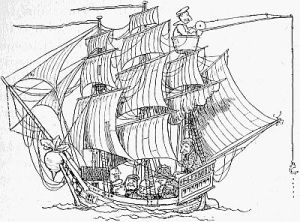Business Ethics Blog Posts 9-10-2016
We start with a post from “Secret Eyes Everywhere” about what you should do if you think Wells Fargo embroiled you in its system of forced enrollment for bank accounts, credit cards, etc. It’s very good advice. Lynn Stout takes on the banking idea of virtue and demolishes it – very nice work. David Yamada in his blog, Minding the Workplace gets reflective on us. “Hello Kitty, Some Blog” has some more on induced earthquakes and we have two good posts from the blog, “The Net Economy.” Last we have a post from “A Philosopher’s Blog,” a site I talked about at length about a week ago.
Best Wishes!!
Please Share, Subscribe and Like — Not just me, but these people are my colleagues and in my mind I see them as soldiers in the good fight and we need as many good hearted souls as we can get in these difficult times. Show some support!
James Pilant
 From Secret Eyes Everywhere, Your Customer Service Advocate–
From Secret Eyes Everywhere, Your Customer Service Advocate–
Get all of your accounts listed
According to The Los Angeles Times, the bank has 90 days to provide federal regulators with a plan to compensate all its customers. Go into a branch or call the customer service line and get a full list of all your accounts in your name. Should you close any or all accounts, be sure to get a receipt showing the account was closed. If there is something on them you don’t understand, be sure to raise hell about it to get it resolved. If a refund of fees is not given, do the next step.
Seek legal assistance (please go to the web site and read the rest! If I include all the good parts I’ll be posting the whole thing instead of an excerpt. jp)
Lynn Stout writing for The Net Economy
 (If you read anything today, go to the link and read this. jp)
(If you read anything today, go to the link and read this. jp)
In the wake of the 2008 crisis, Goldman Sachs CEO Lloyd Blankfein famously told a reporter that bankers are “doing God’s work.”
This is, of course, an important part of the Wall Street mantra: it’s standard operating procedure for bank executives to frequently and loudly proclaim that Wall Street is vital to the nation’s economy and performs socially valuable services by raising capital, providing liquidity to investors, and ensuring that securities are priced accurately so that money flows to where it will be most productive.
There’s just one problem: the Wall Street mantra isn’t true.
From Minding the Workplace and the invaluable David Yamada!
 On this Saturday morning, I’m enjoying some reflective moments that midlife sometimes invites — or requires. And although I don’t have the means to do a demographic survey of this blog’s readership, my best intelligent guess is that a good chunk of you have crossed the 40 year mark. I thought I’d collect a group of previous posts that enable some of that healthy reflection, especially for those who identify as being in midlife, but also hopefully useful to anyone who wants to live meaningfully. In these posts you’ll find some of my own commentary, as well as recommendations of books and articles for further inquiry. (He has a wonderful list – please follow the link to see. jp)
On this Saturday morning, I’m enjoying some reflective moments that midlife sometimes invites — or requires. And although I don’t have the means to do a demographic survey of this blog’s readership, my best intelligent guess is that a good chunk of you have crossed the 40 year mark. I thought I’d collect a group of previous posts that enable some of that healthy reflection, especially for those who identify as being in midlife, but also hopefully useful to anyone who wants to live meaningfully. In these posts you’ll find some of my own commentary, as well as recommendations of books and articles for further inquiry. (He has a wonderful list – please follow the link to see. jp)
From Hello Kitty, Some Blog –
From one of my very favorite blogs, Warrior Publications!
Mounted Lakota warriors, their horses resplendent in traditional regalia, charge a line of law enforcement. They gallop headlong, push back the police, pull up only at the last moment, and then circle back for more.
The scene could be the Battle of the Little Bighorn, circa 1876. But it’s not. Here, along the banks of the Missouri River, just beyond the boundary of the Standing Rock Sioux reservation in North Dakota, indigenous land and water defenders are standing together to block the Dakota Access Pipeline, which threatens their land, water, ancestral burial grounds, and future generations. They are part of a decades-long struggle to assert and reclaim indigenous lands, jurisdictions, and sovereignties. And they are doing so on ground that has given rise to indigenous resistance for centuries.
For the average American, it’s easy to mistake the resistance at Standing Rock for a one-time re-run: indigenous warriors emerge from the wild, put up a brief, fierce, but ultimately tragic fight before succumbing to progress and providence. Cowboys and Indians II: Pipeline edition.
From the web site, The Net Economy.
 In a post-scarcity society, everyone would be guaranteed an income that yielded a standard of living significantly better than poverty, and this guarantee would be unconditional. The move from a near-poverty benefit subject to eligibility conditions to a livable, guaranteed minimum income would require both an increase in productivity, such that a smaller number of workers could produce an adequate income for all, and some fairly radical changes in social attitudes.
In a post-scarcity society, everyone would be guaranteed an income that yielded a standard of living significantly better than poverty, and this guarantee would be unconditional. The move from a near-poverty benefit subject to eligibility conditions to a livable, guaranteed minimum income would require both an increase in productivity, such that a smaller number of workers could produce an adequate income for all, and some fairly radical changes in social attitudes.
It seems clear enough that technological progress can generate the necessary productivity gains, so what is needed most is a change in attitudes to work that would make a guaranteed minimum income socially sustainable.
And another post from The Net Economy
 Yet, ordinary people have not accepted this self-evident, ‘common sense’ knowledge shared by trade experts. They have not only challenged trade expertise by mobilizing counter-expertise (for instance, economic analyses that refute the Commission’s numbers), but they have also mobilized many people in order to make their epistemic claim more vociferously: what the trade experts hold true is wrong, false knowledge. The quarter of a million protesting in Berlin had posited: No, we do not believe that the world is going to be better off due to the TTIP; each and every family will not be 540 euros per year richer; and, no, we do not think that the regulations coming out of the TTIP bodies are going to respect the environment.
Yet, ordinary people have not accepted this self-evident, ‘common sense’ knowledge shared by trade experts. They have not only challenged trade expertise by mobilizing counter-expertise (for instance, economic analyses that refute the Commission’s numbers), but they have also mobilized many people in order to make their epistemic claim more vociferously: what the trade experts hold true is wrong, false knowledge. The quarter of a million protesting in Berlin had posited: No, we do not believe that the world is going to be better off due to the TTIP; each and every family will not be 540 euros per year richer; and, no, we do not think that the regulations coming out of the TTIP bodies are going to respect the environment.
Trade experts are not seen here as neutral arbitrators of public policy but rather as representing a particular stance as to public policy or public interest.
 My adopted state of Florida was just hit by a category one hurricane; my adopted city of Tallahassee sustained considerable damage. A week after the storm hit, there are still people in the city without power. There are also people who suffered considerable property damage. Fortunately, there seems to be only one death attributed to the storm here.
My adopted state of Florida was just hit by a category one hurricane; my adopted city of Tallahassee sustained considerable damage. A week after the storm hit, there are still people in the city without power. There are also people who suffered considerable property damage. Fortunately, there seems to be only one death attributed to the storm here.
I was rather lucky; though my power was out from Friday to Monday, my house sustained no damage and I was well-prepared. I also had the good fortune of leaving the city on Sunday morning on an already scheduled program review at St. Francis University. While I normally dislike airports, it was great having access to AC and electricity again. While I waited for my first flight out, I enjoyed the cool air and recharged my laptop.

You must be logged in to post a comment.